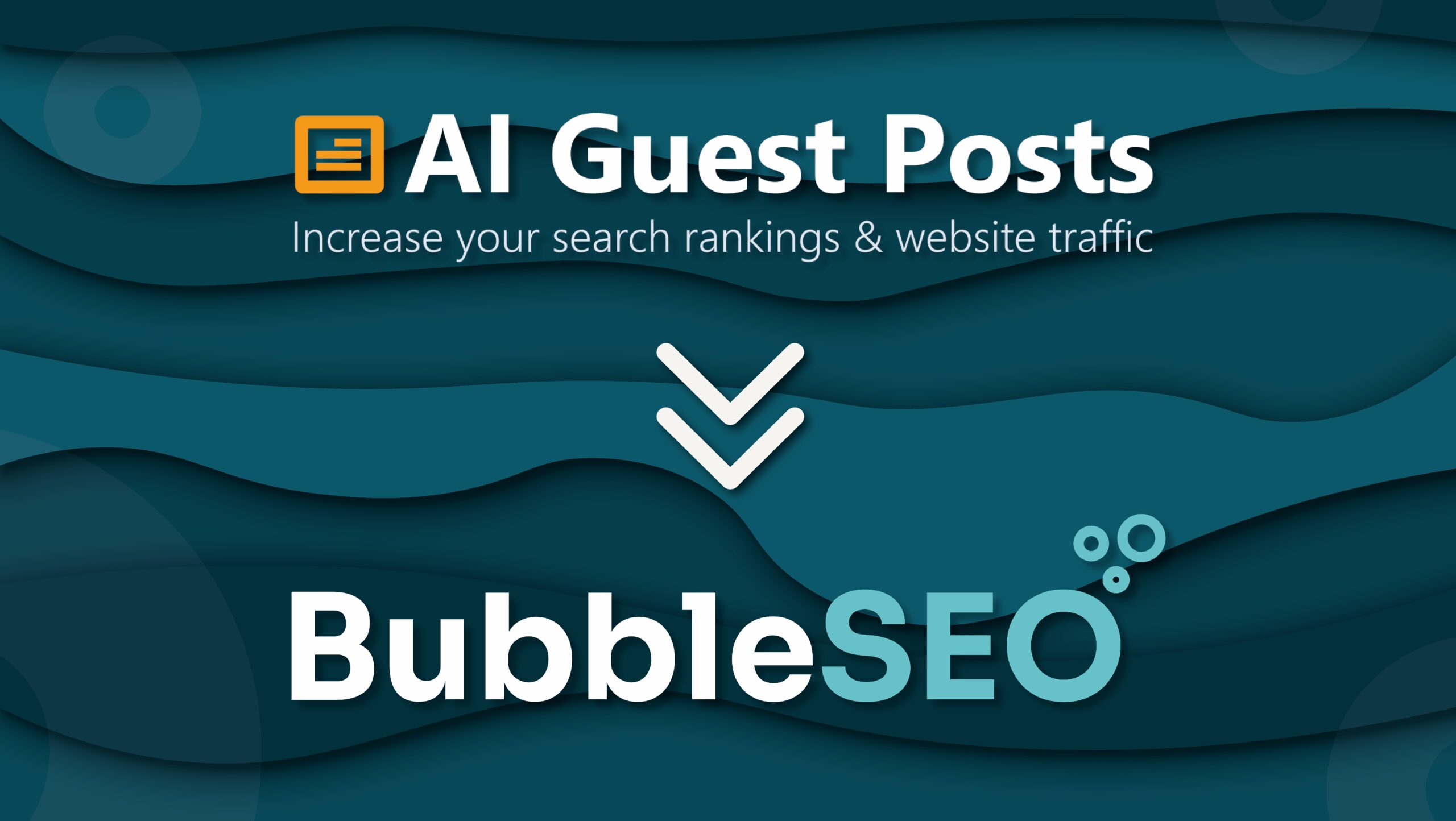
Digital marketing and SEO, paid guest posting has emerged as a powerful strategy

In the ever-evolving landscape of digital marketing, staying ahead in search engine rankings is a critical goal for businesses and outreach

In the ever-evolving landscape of digital marketing, staying ahead in search engine rankings is a critical goal for businesses and outreach. One proven strategy to enhance your site’s SEO is through guest posting. Here we have a look into why guest posts are essential for improving SEO and how they can help boost your online presence.
One of the primary benefits of guest posting is acquiring high-quality backlinks. Search engines, like Google, consider backlinks as votes of confidence from one site to another. When you contribute a guest post to a reputable blog, you often get to include a link back to your site. These backlinks signal to search engines that your content is credible and valuable, which can improve your site’s authority and ranking.
How Backlinks Boost SEO:
Authority Transfer: Links from established sites transfer some of their authority to your site.
Crawling and Indexing: Backlinks help search engines discover your content faster.
Referral Traffic: Quality backlinks can drive direct traffic to your site.
Bubble SEO exposes your brand to a broader audience. By contributing to well-known blogs in your niche, you can reach potential customers who may not have encountered your brand otherwise. This increased visibility can lead to higher search volumes for your brand name, indirectly boosting your SEO.
Benefits of Increased Visibility:
Brand Recognition: Consistent guest posting helps establish your brand as a thought leader.
Audience Growth: Attract new followers and subscribers from the host blog’s audience.
Engagement: Higher visibility can lead to increased social media shares and interactions.
Guest posting helps you build relationships with other bloggers, influencers, and industry experts. These relationships can lead to more guest posting opportunities, collaborative projects, and partnerships, all of which contribute to your SEO strategy.
Networking Advantages:
Future Collaborations: Partnerships can lead to co-created content and mutual backlinks.
Mentions and Shares: Networking can result in more social media mentions and shares.
Industry Insights: Stay updated with the latest trends and insights from industry peers.
Regular guest posting on authoritative sites can improve your domain authority. Domain authority is a metric that predicts how well a website will rank on search engine result pages (SERPs). Higher DA typically correlates with better search engine rankings.
Domain Authority Growth:
Consistent Backlinks: Ongoing guest posts build a steady stream of backlinks.
Trust and Credibility: Association with reputable sites enhances your site’s credibility.
Competitive Edge: Higher DA can help you outrank competitors in search results.
Guest posting is a powerful tool in the SEO arsenal. It provides high-quality backlinks, increases brand visibility, enhances your content portfolio, and boosts your domain authority. By strategically contributing guest posts to reputable blogs, you can significantly improve your site’s SEO, driving more organic traffic and establishing your brand as a leader in your industry.
Investing time and effort into guest posting not only enhances your search engine rankings but also builds a strong foundation for long-term digital marketing success. Start identifying relevant blogs in your niche, craft compelling content, and watch your SEO efforts pay off.
Grow your business online with content marketing solutions from Bubble SEO today.
Place An Order
One of the most common goals within marketing is to rise through the ranks and be on page one of Google, Bing or Ask.com, but how is this achieved?

We're excited to announce that AI Guest Posts has undergone a transformative rebranding and is now known as Bubble SEO. This strategic move has allowed the business to develop within the digital landscape and highlight our commitment to providing digital marketing solutions tailored to enhance online visibility and engagement for our customers. Bubble SEO remains dedicated to delivering high-quality, targeted content and effective SEO solutions that align with evolving digital marketing trends. Here is a little more information about our brand and its services. Our services: At Bubble SEO, we specialise in three core services, with content writing being a new feature to the website: Guest Posting: Which aims to enhance your online presence with high-quality guest posts on authoritative websites, driving traffic and boosting your SEO rankings. Link Building: Helps build a robust backlink profile with strategic link building services that improve your website's authority and visibility. Content Writing: Provides engaging content for your audience with compelling content tailored to your brand voice and SEO needs. Benefits of Bubble SEO: We have now made changes to the booking process to simplify this, and updated the customer dashboard section in the hope to improve our existing values below: Enhanced Service Quality: With our rebranding comes a renewed focus on delivering top-notch services that exceed your expectations. Improved User Experience: Our new website offers a streamlined interface, making it easier for you to navigate and access our services. Expanded Network: Benefit from our expanded network of partner websites, ensuring broader outreach and better opportunities for your business. Loyalty Rewards: As a token of our appreciation for the continued support of our bookers, we have now introduced loyalty rewards: Exclusive Discounts: Enjoy special discounts as a loyal Bubble SEO customer, with the more points you acquire, the more exciting offers you will unlock. We're thrilled about this new chapter as Bubble SEO and look forward to continuing to be your trusted partner in achieving your digital marketing goals. Stay tuned for more exciting updates and announcements! Discover the new Bubble SEO and elevate your online presence today! Jennifer Hobson – Digital Marketing [email protected] Heather Ryan – Business Development [email protected]

Effective keyword targeting is the cornerstone of successful content marketing. By strategically incorporating the right keywords, you can enhance your SEO, drive traffic, and improve your overall content performance.

SERP stands for Search Engine Results Page. This is the page that a search engine displays to the user when they submit a search query. For example, if you go to Google and type in ‘what is martech?’ and press enter or click the search emblem, the search engine results page (or SERP) will be the pages that are returned to you.

If you're new to SEO, navigating through its many layers can seem overwhelming. However, by following a clear, structured approach, you can start optimising your website and boosting your rankings effectively. Here's The Ultimate SEO Checklist for Beginners to help you understand the fundamentals and ensure you're on the right path to success. 1. Keyword Research Keywords form the foundation of any SEO strategy. Start by identifying the main keywords that are relevant to your business or niche. Tools like Google Keyword Planner, Ahrefs, or SEMrush can help you find high-traffic keywords with low competition. Target Long-Tail Keywords: These are more specific phrases that are less competitive and can help you capture targeted traffic. For example, instead of just "SEO," use "SEO for small businesses" or "SEO checklist for beginners." Understand User Intent: Ensure your keywords align with what your target audience is searching for, and use them naturally in your content. 2. On-Page SEO Optimisation Once you've identified your keywords, it's time to optimise your website pages. Title Tags: Include your primary keyword in the title tag, ideally at the beginning. Keep it under 60 characters. Meta Descriptions: Write compelling meta descriptions with your primary keyword to improve click-through rates (CTR). Header Tags: Use headers to structure your content, with the primary keyword in the H1 tag and related keywords in the H2 and H3 tags. Image Alt Text: Include keywords in the alt text of images to help search engines understand the context of your visuals. 3. Create High-Quality Content Content marketing is at the heart of SEO success. Focus on providing valuable, informative, and engaging content that resonates with your audience. Write for Humans First: Avoid keyword stuffing and prioritise creating helpful content that satisfies the needs of your readers. Use Keywords Naturally: Place your primary keyword in the first 100 words, and sprinkle related keywords throughout the text. However, keep the flow natural. Content-Length: While there’s no magic number, longer content (1000+ words) often ranks better, but only if it provides comprehensive value. Consistent Blogging: Regularly publish fresh blog posts on topics relevant to your audience, leveraging your target keywords. 4. Mobile Optimisation With mobile traffic now surpassing desktop, it’s critical that your website is optimised for mobile users. Responsive Design: Ensure your website is mobile-friendly and loads quickly on all devices. Fast Page Load Times: Use tools like Google PageSpeed Insights to check and improve your site’s speed. Slow sites can hurt both rankings and user experience. 5. Build Strong Backlinks Link building is essential for establishing your site's authority in your industry. The more high-quality backlinks (external sites linking to your content) you have, the better your chances of ranking higher in search results. Guest Posting: Write guest posts for reputable blogs within your niche and include backlinks to your site. This helps both SEO and brand visibility. Internal Linking: Link to other relevant content on your website to create a clear structure and boost page authority. Earn Editorial Links: Create high-quality, shareable content that others in your industry will naturally link to, such as guides, infographics, or data-driven reports. 6. Technical SEO Technical SEO ensures that your website is easy for search engines to crawl and index. Submit XML Sitemap: Make sure your site is indexed by submitting an XML sitemap to Google Search Console. Fix Broken Links: Use tools to identify and repair any broken links on your site, as they can hurt both user experience and SEO. Enable HTTPS: If your site doesn’t have an SSL certificate, secure it with HTTPS to protect users and improve rankings. 7. Track and Analyse Your Results SEO is an ongoing process. You need to monitor and measure your performance to see what’s working and what needs improvement. Use Google Analytics: Track your site’s traffic, top-performing pages, and where your visitors are coming from. Monitor Rankings: Regularly check how your keywords are ranking in search engines, and adjust your strategy accordingly. Watch Your Competitors: Keep an eye on competitors who rank well for your target keywords and analyse what they are doing right. By following this SEO checklist, beginners can set a strong foundation for long-term SEO success. From keyword research and content marketing to link building and technical SEO, each step is vital for improving your website’s rankings and visibility. Stay consistent, be patient, and continually refine your strategy as you track your results. With time and effort, you’ll start seeing the benefits of your SEO efforts!

In the fast-paced world of digital marketing, staying ahead of Google’s algorithm changes is critical for maintaining visibility and driving traffic to your website. With 2025 already promising exciting shifts in search engine optimisation (SEO), marketers and business owners must remain proactive to safeguard their online presence. At Bubble SEO, we specialise in helping businesses navigate these changes with ease, ensuring their strategies remain effective and future-proof. Here are some practical steps to keep ahead of Google algorithm changes in 2025. 1. Prioritise High-Quality Content Content remains king in 2025, but Google’s algorithms are becoming increasingly adept at distinguishing truly valuable content from low-effort attempts to game the system. To stay ahead: Write for your audience first and foremost, ensuring your content provides real value. Incorporate structured data like FAQs or how-to guides to enhance visibility in search results. Use tools like Google Trends to identify trending topics and tailor your content accordingly. 2. Focus on E-E-A-T Google's emphasis on Expertise, Experience, Authoritativeness, and Trustworthiness (E-E-A-T) continues to grow. Here’s how to align with these principles: Showcase your credentials and expertise on your website. Regularly update content to reflect the latest industry developments. Earn backlinks from reputable sites to bolster your domain authority. If you need help with building high-quality backlinks, check out Bubble SEO’s services for tailored link-building strategies. 3. Embrace AI and Machine Learning AI is playing a major role in shaping Google’s algorithms. Leverage AI tools to: Optimise your content for user intent. Generate predictive keyword insights. Automate repetitive tasks like on-page SEO audits. Stay informed about the latest AI developments with Google’s AI blog, which offers updates and insights. 4. Optimise for Mobile and Core Web Vitals Mobile-first indexing is now the norm, so your website must be fully optimised for mobile users. Additionally, Google continues to prioritise Core Web Vitals, which measure: Page load speed. Interactivity. Visual stability. Use Google’s PageSpeed Insights to identify areas for improvement and enhance your website’s performance. 5. Harness the Power of Local SEO For businesses targeting specific geographic regions, local SEO is indispensable. To stay ahead: Keep your Google Business Profile updated with accurate information. Encourage customer reviews to build trust and authority. Use geo-targeted keywords to capture local search traffic. 6. Monitor Algorithm Updates Closely Being aware of upcoming changes allows you to adapt swiftly. Regularly check for updates on platforms like: Google Search Central Search Engine Journal By staying informed, you can fine-tune your strategy before your rankings are impacted. Conclusion Navigating Google algorithm changes in 2025 doesn’t have to be daunting. By prioritising quality content, staying informed about updates, and leveraging expert guidance, you can ensure your SEO strategy remains effective. Whether you’re looking for help with link-building, content creation, or an overall strategy refresh, Bubble SEO is here to help. Start 2025 strong by optimising your website today—because staying ahead of the competition begins with staying ahead of Google!

With Black Friday almost upon us, we have put together some tips of how you can get ahead with your socials

The integration of Artificial Intelligence (AI) in Search Engine Optimisation (SEO) has brought both excitement and concern among digital marketers. As we move through 2024, the influence of AI on SEO is undeniable—paving the way for new opportunities while also introducing unique challenges. In this post, we explore the pros and cons of AI in the SEO landscape, and what it means for marketers looking ahead. The Pros of AI in SEO: Redefining Efficiency and Strategy 1. Smarter Content Creation and Personalisation AI-driven tools such as ChatGPT and beyond are transforming content creation by producing high-quality, human-like text efficiently. Marketers can now generate engaging content quickly, reducing the need for large content teams while improving personalisation. AI can analyse user behaviour, providing insights to help tailor content for individual preferences, boosting engagement, and enhancing the user experience. 2. Enhanced Keyword Research and Optimisation AI-based platforms excel at processing vast amounts of data, making keyword research more precise and dynamic. Tools like Ahrefs and SEMrush can identify patterns, trends, and opportunities that would be difficult to uncover manually. Additionally, AI tools have improved predictive analysis, helping marketers anticipate shifts in search trends, and allowing SEO strategies to stay ahead of the curve. 3. Advanced Automation for Routine Tasks AI-powered automation simplifies repetitive SEO tasks such as technical SEO audits and backlink analysis. Automated SEO solutions can address on-page issues, create meta tags, and even generate schema markup—giving marketers more time to focus on strategic initiatives rather than mundane details. 4. Improved User Experience (UX) Search engines are prioritising user experience more than ever, and AI plays a crucial role in analysing user interaction and optimising websites accordingly. AI can detect weak points like slow load times or confusing navigation, allowing for swift adjustments that lead to improved rankings. Google's Page Experience offers key metrics that indicate where websites can be improved to meet these standards. The Cons of AI in SEO: Challenges and Considerations 1. Over-Reliance on Automation One of the significant pitfalls is the risk of over-relying on AI for content creation and strategy. AI may generate content that lacks the nuance and creativity needed to truly connect with audiences. While AI can produce optimised content, it might miss the emotional and cultural context that humans bring to writing—potentially leading to a generic brand voice. For more on balancing AI and human input, check out HubSpot's guide to content marketing. 2. Algorithmic Unpredictability Google and other search engines are incorporating more AI into their algorithms, making SEO practices less predictable. With AI-driven algorithm updates, SEO professionals might struggle to keep up with the rapid and sometimes opaque changes in search ranking factors. To stay informed about these changes, refer to the official Google Search Central Blog. 3. Ethical Concerns and Data Privacy AI's reliance on data poses ethical concerns, especially regarding user privacy. The collection and processing of large volumes of personal data for better targeting can lead to privacy issues if not handled responsibly. Marketers need to be cautious about how they gather and use data, ensuring compliance with regulations like GDPR. 4. Content Saturation and Quality Issues As AI makes content production faster, the web risks becoming oversaturated with mediocre content. The increased quantity of AI-generated articles could result in more competition, making it harder for high-quality, unique content to stand out. Ensuring originality and value in every piece becomes a critical challenge. To enhance your content, consider using Grammarly for quality assurance and to maintain a professional tone. The Road Ahead: Balancing AI and Human Expertise As AI continues to shape the SEO landscape, the key to success lies in balance. SEO professionals should leverage AI to enhance efficiency, provide data-driven insights, and optimise workflows. However, the human touch remains irreplaceable—marketers must ensure that creativity, empathy, and strategic thinking are at the forefront of their efforts. The future of SEO in 2024 and beyond is exciting, filled with opportunities to harness the power of AI to create more impactful strategies. By embracing these technologies while recognising their limitations, marketers can navigate the evolving landscape with confidence and maintain a competitive edge. Conclusion AI is revolutionising SEO, bringing about both incredible advantages and significant challenges. The best results will come to those who use AI as a tool—augmenting, not replacing, the essential elements of human intuition, creativity, and strategy in digital marketing.